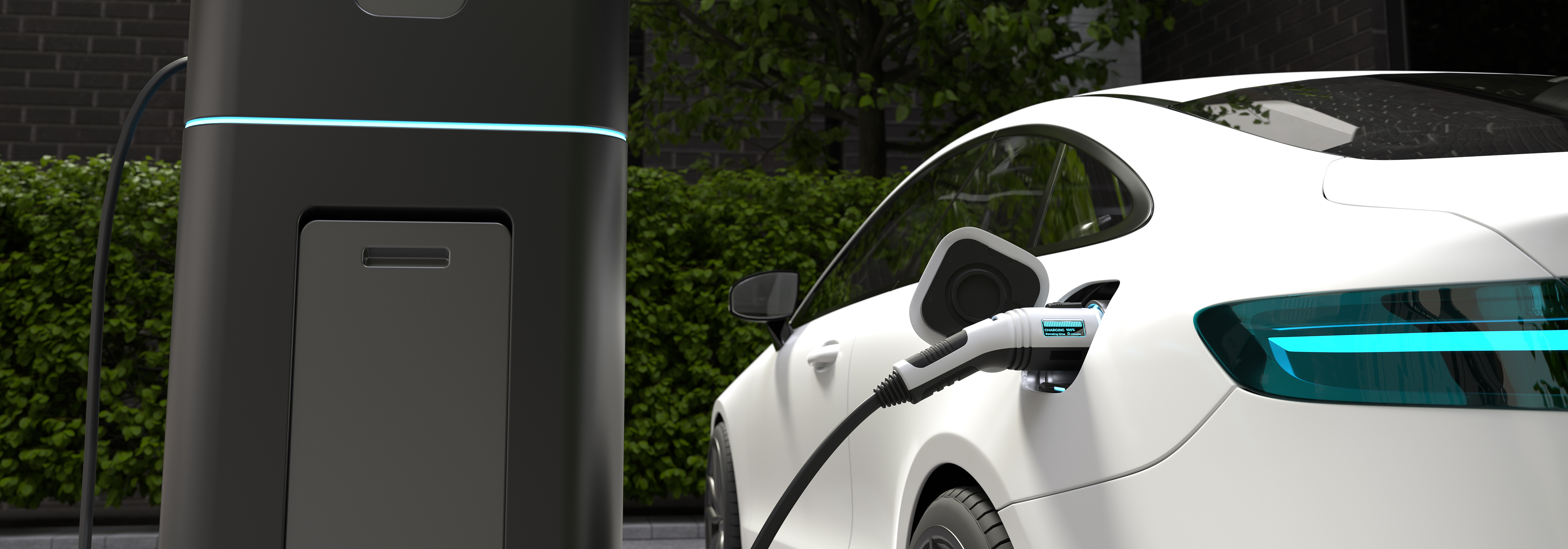Plugging In: Electric Vehicle Charging Stations in Virginia Community Associations

The past decade has seen an explosion in the popularity of electric vehicles. All expectations are that this popularity will continue to grow. There are many makes and models of electric vehicles, and they can be classified as either battery electric vehicles (“BEVs”) or plug-in hybrid electric vehicles (“PHEVs”)—both of which need to be charged by plugging into an outlet or charging station.
In 2020, Virginia took affirmative steps to address how Virginia community associations could regulate electric vehicle charging stations within their communities by adopting new code sections to the Virginia Property Owners’ Association Act (Va. Code § 55.1-1823.1), Condominium Act (Va. Code § 1962.1), and Cooperative Act (Va. Code § 2139.1). Effective July 1, 2020, lot owners, unit owners, and proprietary lessees are permitted to install an electric vehicle charging station for their personal use within the boundaries of their lot (for property owners’ associations) or unit or limited common element parking space (for condominiums and cooperatives) unless an association’s declaration, condominium instruments, or other recorded governing document provides otherwise. With the rising popularity of electric vehicles, Virginia community associations should be knowledgeable in how to respond to installation requests from residents.
Considerations for Property Owners’ Associations (“POAs”)
The Virginia Property Owners’ Association Act allows POAs to establish reasonable restrictions regarding the number, size, place and manner of placement or installation of the charging station on the exterior of the property owned by the owner. As for common areas, POAs may prohibit or restrict the installation of electric vehicle charging stations and establish reasonable restrictions as to the number, size, place, and manner of placement or installation of such charging station.
Considerations for Condominiums and Cooperatives
Both the Condominium Act and Cooperative Act permit condominium associations and cooperatives, respectively, to require as a condition of approving installation of an electric vehicle charging station that a unit owner/proprietary lessee does the following:
-
Provide detailed plans and drawings for installation of the charging station prepared by a licensed and registered electrical contractor or engineer familiar with the installation and core requirements of such charging station;
-
Comply with building codes or recognized safety standards;
-
Comply with reasonable architectural standards adopted by the association that govern the dimensions, placement, or external appearance of the electric vehicle charging station;
-
Pay the costs of installation, maintenance, operation, and use of the charging station;
-
Indemnify and hold the unit owners’ association/cooperative harmless from any claim made by a contractor or supplier pursuant to Title 43 (mechanics’ and other liens);
-
Pay the cost of removal of the electric vehicle charging station and restoration of the area if the unit owner or proprietary lessee decides there is no longer a need for such charging station;
-
Separately meter, at the unit owner’s or proprietary lessee’s sole expense, the utilities associated with such electric vehicle charging station and pay the cost of electricity and other associated utilities.
-
Engage the services of a licensed electrician or engineer familiar with the installation and core requirements of an electric vehicle charging station to install such charging station.
-
Obtain and maintain insurance covering claims and defenses of claims related to the installation, maintenance, operation, and use of the electric vehicle charging station and provide a certificate of insurance naming the unit owners’ association/cooperative as an additional insured on the unit owner’s/proprietary lessee’s insurance policy for any claim related to the installation, maintenance, operation, or use of the electric vehicle charging station within 14 days after receiving the unit owners’ association’s/cooperative’s approval to install such charging station.
-
Reimburse the association for any increase in common expenses specifically attributable to the electric vehicle charging station installation, including the actual cost of any increased insurance premium amount, within 14 days’ notice from the unit owners’ association/cooperative.
Condominium associations and cooperatives should consider engaging association legal counsel to prepare a written document regarding these statutorily-authorized responsibilities of the unit owner or proprietary lessee. Condominium associations and cooperatives should also adopt architectural standards that govern the dimensions, placement, or external appearance of electric vehicle charging stations.
Of significance, the Condominium Act and Cooperative Acts allow an association to prohibit a unit owner or proprietary lessee from installing an electric charging station if such installation is not technically feasible or reasonably practicable due to safety risks, structural issues, or engineering conditions. This determination may be based on the information and documentation the unit owner or proprietary lessee provides to the association as well any independent inquiry the association may conduct at its own expense.
Shared Considerations for POAs, Condominiums, and Cooperatives
The Virginia POA Act, Condominium Act, and Cooperative Act all provide that lot owners, unit owners, and proprietary lessees must indemnify and hold the association harmless from all liability, including reasonable attorney fees incurred by the association resulting from a claim, arising out of installation, maintenance, operation or use of such electric charging station. This provision also allows associations to require that lots owners, unit owners, and proprietary lessees obtain and maintain insurance covering claims and defenses related to the charging station and may also require to be named as an additional insured under such policy. Associations should contact their legal counsel to prepare the necessary agreement in which the lot owner, unit owner or proprietary lessee agree to such indemnification and insurance requirements.
Kathleen W. Panagis is an Of Counsel attorney with Woods Rogers Vandeventer Black PLC and a member of the firm’s Community Associations law team. With close to fifteen years of experience, she serves as general counsel to homeowner and condominium associations located in Virginia. Kathleen serves on the Board of Directors for the Southeastern Virginia Chapter of the Community Associations Institute (“SEVA-CAI”), where she currently serves as vice president. She frequently teaches at chapter events and regularly authors articles for the chapter.
4877-1297-0577, v. 1
